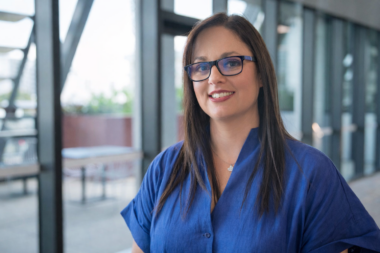The Australian Government today tabled the final report of the Productivity Commission’s inquiry into early childhood education and care (ECEC). The report presents government with a roadmap to a high-quality universal early childhood education and care system that is accessible, within the means of all families, equitable and inclusive for all children. This system would ensure every child aged 0–5 has access to high-quality ECEC for at least 30 hours or three days a week, for 48 weeks of the year.
Modelling shows that the recommended reforms would increase demand for ECEC by 10%, primarily from children in low- and middle-income families who are currently not attending services.
Parents’ labour force participation would be expected to rise, as services become more inclusive, available and responsive to families’ needs.
The report’s recommendations were informed by engagement with hundreds of people from the ECEC sector, academia, advocacy and the broader public across Australia.
To achieve the long-term goal of a universal ECEC system, the Australian Government should first act to ensure that cost is not a barrier to access for children from low-income families. The report recommends abolishing the activity test and increasing the rate of the Child Care Subsidy for families on incomes of up to $80,000 to 100% of the hourly rate cap.
“Children experiencing vulnerability and disadvantage benefit the most from quality early childhood education and care, but they are currently the least likely to attend,” said Associate Commissioner Deborah Brennan.
The report finds that the activity test, which links the amount that a family works, studies or volunteers with the amount of Child Care Subsidy they receive, is a barrier to access for low-income families and does little to incentivise labour force participation and should be removed.
“A child’s entitlement to at least three days of ECEC a week should not depend on how much their parents work,” said Associate Commissioner Brennan.
The report also recommends that governments introduce new measures to support the ECEC workforce – giving those who are starting in the sector access to tailored training options and creating better mentoring, professional development and career pathways for those who already work in the sector. These measures, coupled with the recently announced improvements to pay, should alleviate some of the recruitment and retention challenges the sector has been experiencing for a long time.
“We will not make any progress towards a universal system without addressing the sector’s workforce challenges. Improving pay and conditions is critical but more can be done to improve career and qualification pathways for ECEC professions,” said Commissioner Martin Stokie.
Achieving universal childcare will also require government to further invest in establishing ECEC services in communities experiencing disadvantage and regional and remote communities.
“Some areas of Australia have few or no early childhood education and care services. More funding will be needed to address these persistent service gaps,” said Commissioner Lisa Gropp.
The report also recommends expanding access to outside school hours care. State and territory governments should facilitate the provision of outside school hours care in all public schools where there is sustainable demand.
The report says that increasing access and availability cannot come at the expense of quality. It recommends investing in quality, through greater support for the regulatory system and better information to services and parents.
Government should also prioritise ensuring that ECEC services are inclusive for all children.
“Governments and ECEC services also need to do more to achieve the commitments in the Closing the Gap Agreement for Aboriginal and Torres Strait Islander children. That means working towards a sustainable funding model for Aboriginal Community Controlled Organisations and investing in the capability of the sector, to make all services culturally safe,” said Commissioner Stokie.
“The system can only be universal if every child is welcome. The Australian Government should increase funding to enable the inclusion of all children regardless of their ability or cultural background,” said Commissioner Stokie.
Read the final report, A path to universal early childhood education and care, at https://www.pc.gov.au/inquiries/completed/childhood/report
Contact details:
Media requests: 02 6240 3330 / [email protected]


